U.S. COAST GUARD
2023 EDITION











4 Forsblom serves at ALC, coaches baseball at River Road Middle
7 Childs: Serving in Honor Guard for Coastie hero Evans highlight of her career

10 Donohue to prospective Coasties: Seek advice from all members, active and retired
12 Coast Guard helps Fuentes strike
‘healthy work-life balance’
14 Kenny is chief accountant at Aviation Logistics Center
17 Bowden: USCG has taught him a lot, prepped him to learn more
18 NSFCC’s Norman proud of work helping NJ protect endangered shorebird
19 Jopp: Recruiter’s initiative sold him on career in Coast Guard
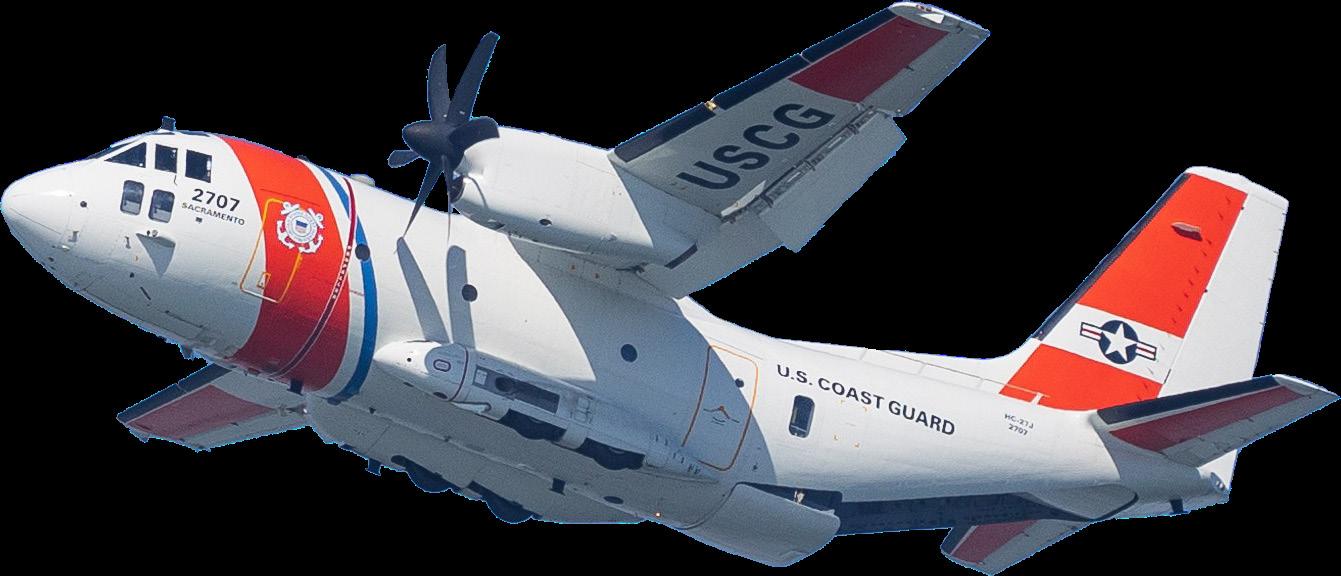
21 Departing Air Station commander Lewin looking forward to retirement in EC
22 Moberley takes command of National Strike Force
No Ethanol 100% Gasoline
Chief Petty Offcer Lee Forsblom graduated high school and instead of following his brother’s path to military service, he joined the Coast Guard.
“I didn’t want to go to college out of high school,” he said. “My brother was serving in the Navy and told me about the Coast Guard; so I called the recruiter and joined.”
Forsblom, who is an aviation maintenance technician assigned to the Aviation Logistics Center, turned his frst-time enlistment into a career that has spanned nearly 24 years.
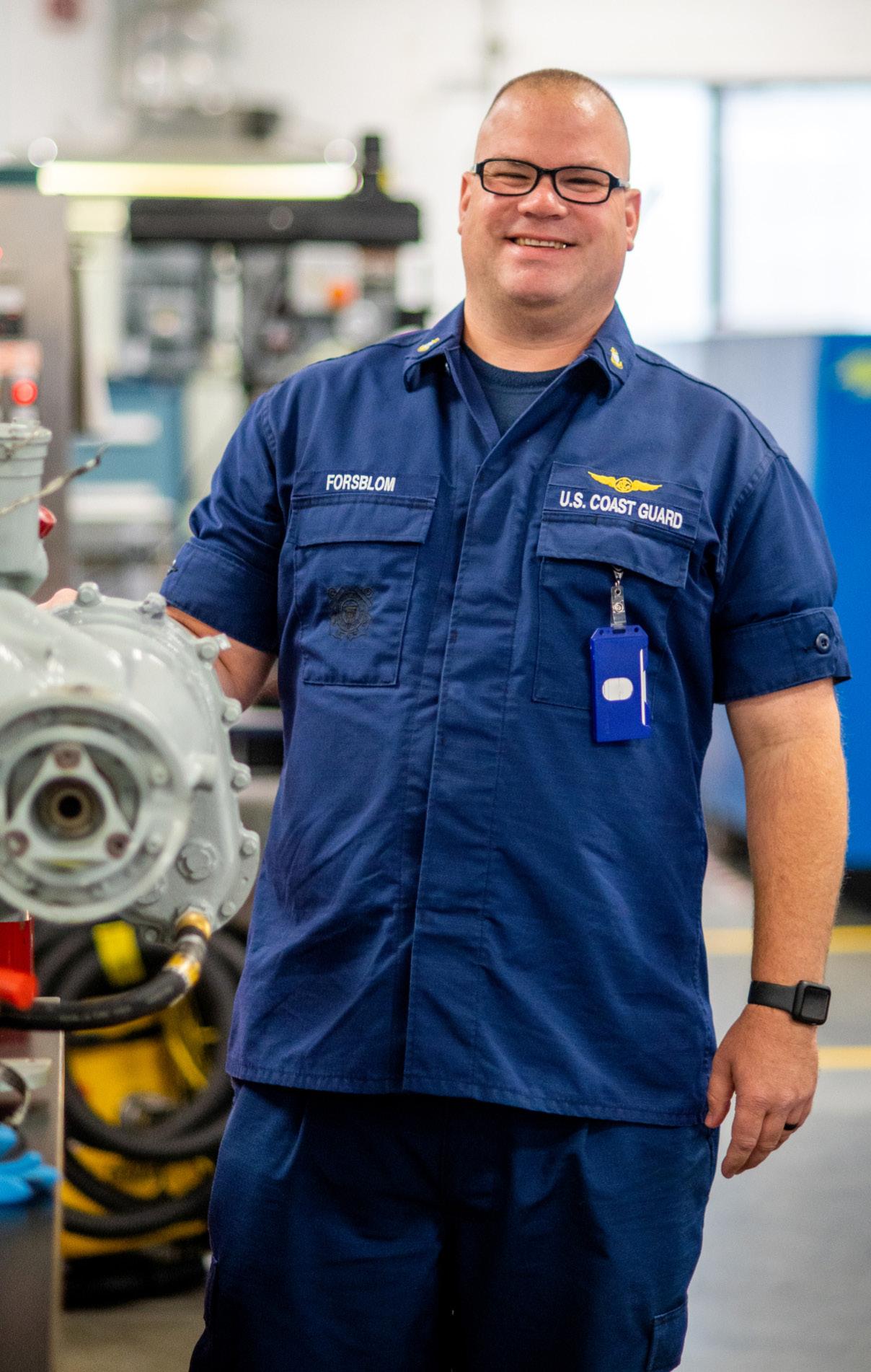
Now 43, the Hankins, New York native said he chose the AMT rating because he likes “to fx broken things.”
“And aviation looked fun, so I added my name to the ‘A’ school list to be an AMT,” Hankins said, referring to the process that all enlisted members go through in determining which rate, or job specialty, that most interests them. Members select a rate and add their name to the waiting list for that particular rate’s “A” school, which is the initial phase of job training and usually takes several weeks to complete. All of the Coast Guard’s enlisted aviation personnel attend their chosen “A” school at the Aviation Technical Training Center, also located on the Elizabeth City base.
Going into aviation offered Forsblom more than the chance to maintain the Coast Guard’s feet of fxed wing aircraft and helicopters.
“This allowed me to work on multimillion-dollar aircraft and an opportunity to fy conducting search and rescue, law enforcement, fsheries patrols, and other missions,” he said.
Forsblom has worked at ALC for three years in the unit’s Engineering Services Division, where he assists in managing quality assurance programs, performs audits and reviews and, when necessary, amends USCG aviation policies.
ALC oversees logistics and maintenance and depot level upkeep of the Coast Guard’s feet of aircraft and has a workforce that includes Coasties and civilians. Forsblom said a diverse workforce is one element he enjoys most about working at ALC.
“Working with a diverse group of civilian and military personnel, we do some amazing work for the Coast Guard aviation community, so they fy safe aircraft and can go save lives and perform other Coast Guard missions,” he said.
One particular mission that Forsblom recalled as one of the more interesting he’s been involved with occurred on Sept. 11, 2017. That day, the remnants of a hurricane were moving away from the region but a fshing vessel with fve people aboard had sunk off Norfolk, Va., in 4- to 6-foot seas, he said.
“Some crew members made it to the life raft, (and) others were clinging to foating debris,” Forsblom said.
As part of an H-60 helicopter crew out of Air Station Elizabeth City, he assisted in hoisting the fve people aboard the helicopter.
In addition to ALC and Air Station EC, Forsblom also has served at Sector Buffalo, New York; Air Station Clearwater, Florida; Air Station Sitka, Alaska and Air Station Cape Cod, Massachusetts.
“Sitka was my favorite, due to hiking, fshing and scenery,” he said. “It was a beautiful place to live.”
The opportunity to serve in so many different units around the country is one of the advantages to Coast Guard life, according to Forsblom.

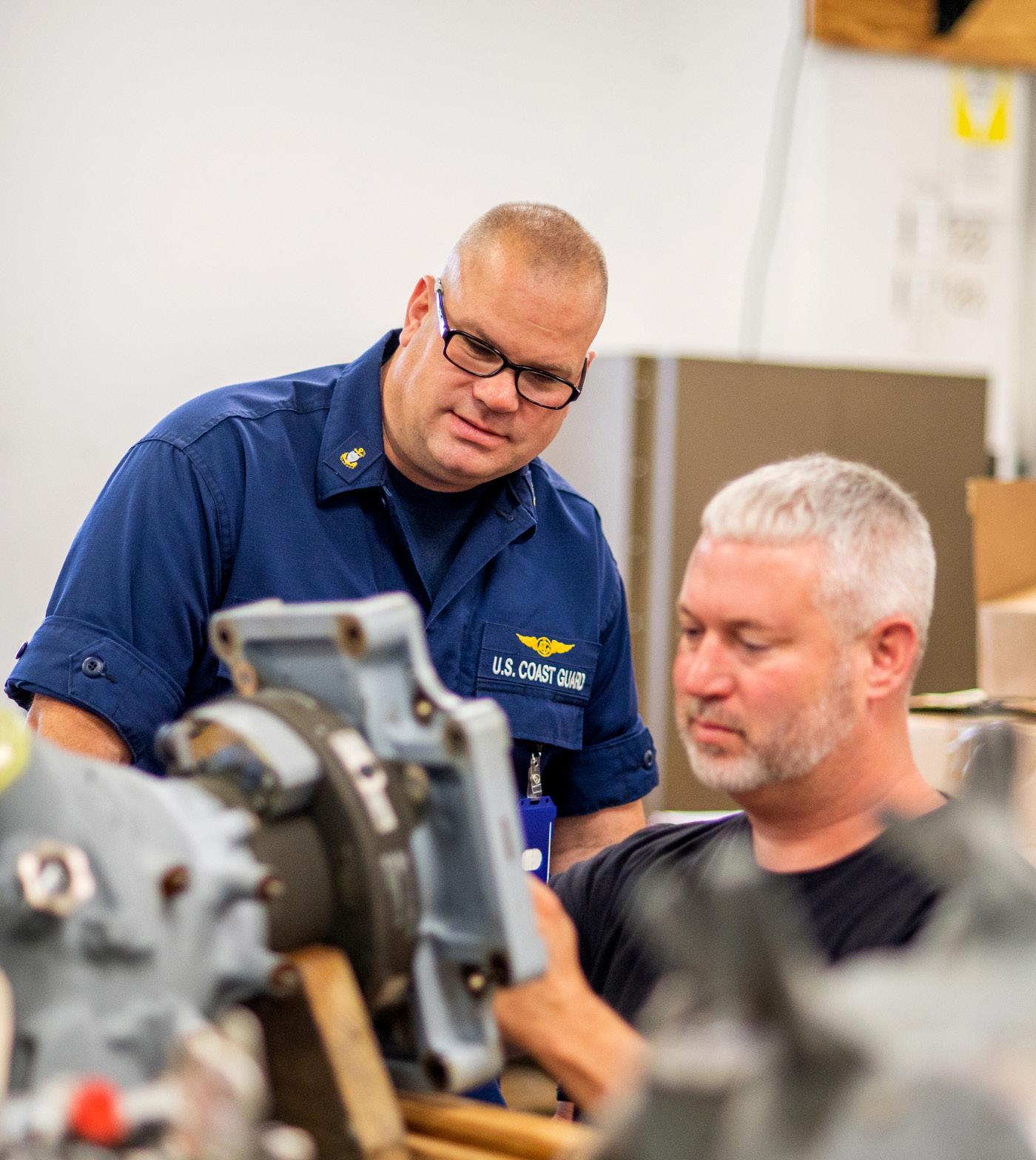
“Moving to new places every four years, making new friends and seeing old friends from previous units,” Forsblom said, before listing other perks. “Advantages are military discounts, being involved in local communities, (a) sense of pride and serving your country. We do and perform a lot of neat missions.”
Some of those advantages also present challenges, such as “moving, fnding new schools for your children, (a) job for your spouse, a house (and) leaving the family and friends you have made,” he said.


When away from work and not in uniform, Forsblom spends time with his family and by helping out in the community.
“I enjoy coaching baseball at River Road Middle School, watching the Norfolk Tides and River City Skippers with the family (and) working with the Weeksville Lions Club and going to church at Newbegun United Methodist,” he said.


Forsblom said his advice to young people who are considering the Coast Guard is to enlist.
“Join,” he said. “You will gain some lifelong friends, see the world, learn a job skill, get money for advanced education (and) have the chance to protect your country and maybe save or help a person in need.”


According to Forsblom, he is the recipient of several awards and medals, including a 2019 Navy League Douglas A. Munro Award, which included his feld promotion to chief petty offcer and recognition by the Coast Guard commandant; two Commendation Medals; three Achievement Medals and several unit and team awards.


The current high school and college graduation season might be over, but Amanda “Mandie” Childs still has some sage advice for young people contemplating whether a career in the Coast Guard might be for them.

“Be open minded,” Childs says. “Don’t join a service with things ‘planned out’ for yourself. Be open to going places far from home and experiencing things outside your comfort zone.”
She continues: “Even be open minded to different jobs you might enjoy more than you thought when you frst join. You might think you want to do one thing, and end up fnding you have a passion for something totally different. Life always has a way of showing us who we were made to be — embrace that.”
Childs knows of what she speaks. It’s advice the 37-year-old yeoman frst class frst followed when she started her own Coast Guard career 14 years ago and it’s counsel she’s continued to follow ever since.
Childs, a Bryson City native, says “serving in the military had crossed her mind many times” while she was in college studying for a degree in emergency medical science. However, it wasn’t until she was a semester shy of completing
her degree that she decided to give the Coast Guard a try.
She says she realized “that despite loving my small hometown, I wanted to see what else the world had to offer.” She said she called a recruiter and “left two months later.”
It’s a decision she hasn’t regretted. She’s happy with the Coast Guard as her career and plans to stay in for at least 20 years.
Childs said she chose the Coast Guard over the other military services because she had grown up in a military family and the Coast Guard’s missions “appealed to me most.”
Childs is currently a yeoman frst class assigned to the National Strike Force Coordinating Center in Elizabeth City. But becoming a yeoman wasn’t her initial plan.
“I initially wanted to be a health services technician because of my medical training background,” she said.
While recovering from knee surgery, however, Childs was assigned to work with a yeoman chief warrant offcer. Following her own advice about keeping an open mind and not being afraid to try new things, Childs says she “fell in love with the job” of being a yeoman.
“I enjoy taking care of people and making the diffcult things for others easier, so it just appealed to me from day one,” she said.






In her work at the NSFCC, where she’s been assigned for the past year, Childs serves as the administrative specialist for the unit. She handles all pay, personnel or travel-related issues for other NSFCC staff.

Childs is enjoying her assignment at the NSFCC because she says it’s allowed her to “fnally be back in my home state.”


“After wanting to leave the nest when I frst joined, that desire to get back close to home has set in many years later and it’s great to be back in my home state, fnally,” she said.




Prior to coming to work at the NSFCC, Childs’ previous duty stations included the USCG Cutter Midgett at Base Seattle in Seattle, Washington; the Aviation Training Center Mobile in Mobile, Alabama; the Eighth Coast Guard District in New Orleans; the USCG Cutter Dauntless in Pensacola, Florida; and Coast Guard Sector Mobile in Mobile, Alabama.
She says Mobile, where she was stationed twice, is her favorite duty station.



“It is where I frst met my husband and where we would later build our family,” she said. “It is a city that has become very close to my heart and (it’s) full of memories.”
Childs said she and her husband have come to love Elizabeth City over the past year.
“We have spent the last decade on the Gulf (of Mexico), either in large towns or major cities, and we are really loving the small, quiet, hometown feel of Elizabeth City,” she said.


When she’s not busy working, Childs enjoys spending time with her husband, their two grown children when they’re able to visit — one’s in college, the other in the U.S. Army — and their fve dogs who she says have become her and her husband’s “surrogate children.”










Childs says the most interesting experience she’s had in the Coast Guard was as a member of the Honor Guard that served at the funeral for retired Coast Guard Cmdr. Ray Evans. Evans, who died on May 30, 2013, was the last survivor of a group of Coast Guardsmen who successfully rescued 500 Marines pinned down by machine gun fre during the battle of Guadalcanal on Sept. 22, 1942, a feat for which Evans would earn the Navy Cross.
According to the Historical Marker Database, the Coasties who rescued the 500 marines from the beaches of Guadalcanal were led by Signalman First Class Douglas A. Munro.

“Near the completion of the mission, the few marines remaining on the beach were pinned down by Japanese gunfre,” the online Historical Marker Database states. “Munro used his boat to cover the marines’ escape. Within minutes after the last marine was safe, Munro was fatally wounded.”


In recognition for his extraordinary bravery, Munro became the frst and only Coast Guardsman to receive the Congressional Medal of Honor, the Historical Marker Database states. The Coast Guard Cutter Munro is named in his honor.


“CDR Evans was SM1 Douglas Munro’s best friend and someone we learn about as part of our service’s history,” Childs said. “Afterward we had the honor of sitting down and visiting with Mrs. Evans for a while. Hearing her speak about the most famous individual in the Coast Guard’s history and refer to him as ‘Doug’ was just a surreal and truly honored experience.”
Like many other Coasties, Childs says “the people you meet along the way” are the best part about Coast Guard life.
“Military life often pushes us far from home and away from family,” she said. “You truly cannot put a price on the bonds you forge with those you end up sharing your life and experiences with because they are in the same lifestyle lane as you, and you truly do have friends who become family along the way.”









Petty Offcer 1st Class Sean Donohue joined the U.S. Coast Guard because of the service’s many missions.
“I loved the mission diversity of the Coast Guard,” he said. “It was really cool to think you could do everything from the International Ice Patrol to drug interdiction and hurricane response.”
Donohue, 42, is an avionics electrical technician assigned to the Aviation Logistics Center.
“I have always enjoyed electronics and aviation, so I was extremely excited to know that I could combine them both,” he said, referring to why he chose the AET career path.
A native of Warrenton, Virginia, Donohue has been in the Coast Guard 17 years. At ALC he is assigned to the unit’s LongRange Surveillance Product Line, where he provides “avionics technical assistance to the C-130J feet, as well as test and evaluate new avionics systems and component upgrades.”
The ALC has a workforce of roughly 1,800 U.S. Coast Guard and civilian personnel who are tasked with the maintenance and upkeep of the service’s feet of more than 200 fxed wing aircraft and helicopters.
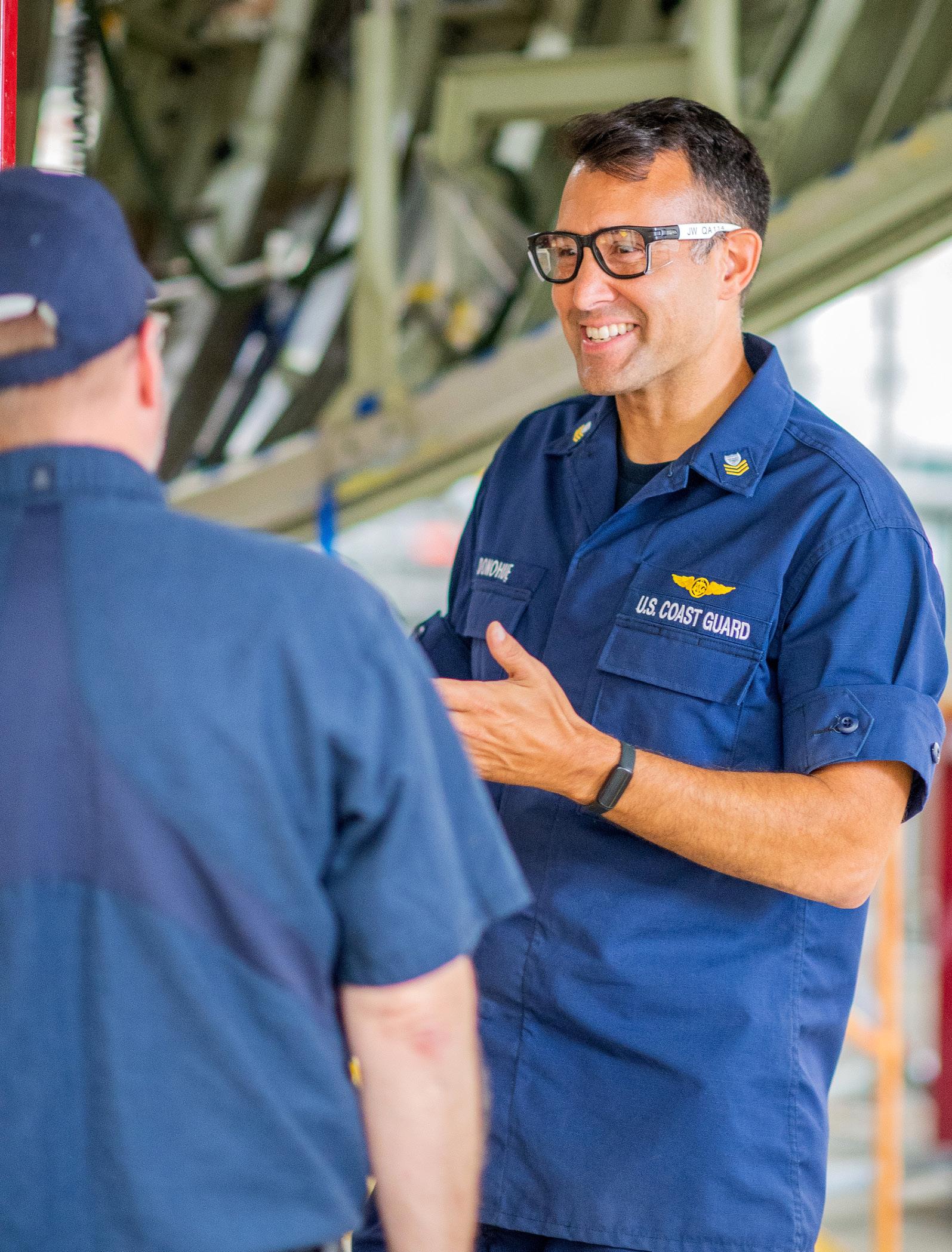
“I really enjoy the people I work with every day and the projects I’m involved with,” Donohue said.
Donohue also has served assignments in Kodiak, Alaska; Cape Cod, Massachusetts; and Charlottesville, Virginia. The latter assignment was for educational purposes, he said.
“Kodiak, Alaska, was my favorite duty station,” he said. “I love the outdoors, so there really aren’t very many places better for someone who enjoys being outside.”
Getting to travel is among the advantages Donohue said he and his family have enjoyed because of his career.
“My family and I have been to some amazing places that I’m not sure we would have seen if I wasn’t in the Coast Guard,” he said.
One challenge he sees to Coast Guard life is one that’s often expressed by other career service members.
“Moving around every four years can be tough on a family, especially when you have older children, and they have to leave close friendships,” Donohue said.
When not in uniform and away from work, Donohue devotes his time to his family.
“I love spending time with my family and coaching my son’s and daughters’ sports teams,” he said. “I also love running and cycling.”
Some of Donohue’s more memorable moments as a Coastie include his deployments to the Caribbean.
“I always enjoyed the drug interdiction deployments to South America and the Caribbean,” Donohue said. “We would conduct
search operations in specifc areas looking for vessels transporting illegal narcotics into the U.S. and to partner nations.”
Donohue’s advice to young people interested in enlisting is to speak to both active and former Coast Guard members.




“Talk to as many people as you can throughout the Coast Guard – everyone from the members right out of boot camp to the most seasoned members with over 20 years of service, as well as retirees.



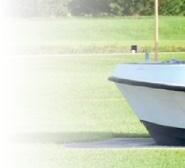



“This will give you all different perspectives on what the Coast Guard is all about,” he said. “Don’t be afraid to pick up the phone and call people. I think the majority of us would be more than happy to talk and answer questions.”
Donohue is the recipient of a Coast Guard Commendation Medal, an Achievement Medal, a Letter of Commendation, the Lt. Robert A. Perchard Memorial Trophy, a C-130 Golden Wrench Award and has twice been named an Enlisted Person of the Quarter.

As a husband and father of two children, Elmer Benavent Fuentes says family is the most important driving force in his life
So fnding a career that was “family friendly” and struck the right balance between life and work was important to Fuentes, a 27-year-old native of Arecibo, Puerto Rico.
Fuentes says he found out frst hand how challenging military service can be for maintaining a “healthy work-life balance” when he served in the U.S. Marine Corps. It’s why he says he decided two years ago to leave the Marines and join the Coast Guard.
“By joining the Coast Guard, I found an organization that not only shares my passion for maritime security and safety but also understands the signifcance of promoting a healthy work-life balance,” he said. “This alignment of values made it a natural choice for me to continue my service in an environment that prioritizes the well-being of its members and their families.”
For the past two years, Fuentes has served at Small Boat Station Elizabeth City. He’s currently an E-4 boatswain’s mate.
Like other Coasties, Fuentes said he enjoys the fact that the Coast Guard is tasked with multiple missions — not just maritime security and law enforcement but also search and rescue and environmental protection. He also likes that the Coast Guard allows him to use his prior skills and learn new ones.

“I am fully committed to making the Coast Guard my long-term career,” he says. “I am determined to continue growing as a Coast Guardsman.”
Fuentes says he chose the boatswain’s mate rate because it “aligns perfectly” with the skills he gained and experiences he had while in the Marines. He also says the rate was “a natural choice” given his “desire to work directly with vessels and contribute to the Coast Guard’s mission of safeguarding our maritime domain.”
Fuentes’ role at Small Boat Station Elizabeth City seems as multifaceted as the Coast Guard itself. He serves as a coxswain, crewmember and boarding team member. He not only helps maintain Coast Guard vessels and equipment and ensure their readiness, he’s also responsible for operating and navigating Coast Guard vessels during missions and training exercises.
“It is a demanding yet rewarding position that requires teamwork, attention to detail, and a commitment to the Coast Guard’s mission,” he said.
Fuentes said one of the most interesting parts of his job is “the opportunity to work with other agencies on joint operations focused on maritime safety and security.” He also enjoys performing safety boardings of recreational vessels because he says it allows him to engage with the boating public and “enhance their
understanding of safety requirements.”

“By boarding vessels, we are able to educate boaters on essential safety practices, (perform) equipment inspections, and (ensure) compliance with local boating laws,” he said. “These boardings serve as proactive measures to prevent accidents, enforce regulations, and promote a culture of responsible boating.”
Fuentes said he’s found service at Small Boat Station Elizabeth City “exceptional.” He said he’s been provided with opportunities for professional development and specialized training, all of which have helped him expand his skills, gain qualifcations, and “further enhance my capabilities as a Coast Guardsman.” Not only has he gained qualifcations in Boat Crew, and as a Boarding Team Member and Coxswain, he’s also been named Sailor of the Quarter.
He says the best part about the station is the “strong sense of camaraderie and the tight-knit community” it fosters among the Coasties assigned to it.
“The station fosters a supportive and inclusive environment, where teamwork and mutual respect are highly valued,” Fuentes said.
As for Elizabeth City, he’s found the local community both welcoming and friendly.

“The city has a rich maritime heritage and a deep appreciation for the Coast Guard’s presence,” Fuentes said. “The local residents show great support and gratitude for
the work we do, which further strengthens our connection to the community.”


Because family remains his “absolute priority,” it’s not surprising that Fuentes spends much of his down time with his wife, Dianelis, and their two children, Justin and Sofa. Whether it’s exploring local parks, going on family bike rides, having picnics on the beach, enjoying movie nights or cooking or baking together, Fuentes says “being with my wife and kids flls my heart with joy and fulfllment.”
“My family are the foundation of my happiness and the driving force behind my dedication to serving in the Coast Guard,” he said.
Fuentes says Coast Guard life instills “a sense of purpose and pride” while also providing a wide range of opportunities for personal and professional growth. It does all this within a culture that emphasizes teamwork and camaraderie. So obviously he recommends a Coastie career to young people.

“Joining the Coast Guard is a remarkable opportunity to serve our nation, make a difference, and embark on a rewarding career,” he said.
But Coast Guard service also demands “fexibility and adaptability” from those who join its ranks, Fuentes said. For that reason he also advises young people “to take the time to thoroughly research and understand the expectations, responsibilities, and sacrifces that come with being a Coast Guardsman.”
Cmdr. Kalen Kenny is the head accountant at the Aviation Logistics Center, whose workforce of roughly 1,800 civilian and U.S. Coast Guard personnel are tasked with the maintenance and upkeep of the service’s feet of more than 200 fxed wing aircraft and helicopters.

Kenny, 41, is the ALC comptroller and is a native of Fayetteville. He has been in the Coast Guard for more than 20 years.
“I have 19 years of active-duty service, following my graduation from the U.S. Coast Guard Academy in New London, Connecticut in 2004,” said Kenny, who is the son of a career Army soldier. “I was initially looking into the U.S. Merchant Marine Academy, and then heard about USCGA, too, as both service academies were under the U.S. Department of Transportation at the time. After researching it further, I became more interested in the Coast Guard due to its missions and the multiple career options it offered.”
Before its transfer to the U.S. Department of Homeland Security in March 2003, the Coast Guard had operated as a function of the U.S. Department of Transportation since the late 1960s.
At the academy, Kenny concentrated on a dual specialty curriculum focused on surface vessel afoat operations and fnancial management, or funding. Since the academy, Kenny has spent much of his career serving aboard cutters, which as one can imagine, spend considerable time at sea and away from family.
“I came up in the ship feet,” he said. “In my frst 11 years I was on underway units for eight of them, and while I wouldn’t trade that time for anything, it was really diffcult for family life and had limited options for a post-Coast Guard career. After that, I applied to and was fortunate enough to be selected for the fnancial management sub-specialty program, which I’ve been a part of since 2015.”
The program assigns offcers to positions as “designated fnancial manager/analyst positions” within the Coast Guard and “opens doors for follow-on positions in contracting and procurement,” Kenny said.
Kenny’s staff is responsible for maintaining ALC’s budget, which reaches amounts in the hundreds of millions of dollars.
“I have been the comptroller of the ALC since reporting here in May of 2020,” he said. “We handle the budget for the ALC, which annually spends and accounts for roughly $500 million.
“In addition to that, my offce pays all of the invoices across ALC, compiles and verifes the accounting records, and oversees the warehouse that stores and issues out over $1.7 billion in valued aircraft engineering inventory parts and components across ALC and our 25 operational air stations throughout the country.”
The Coast Guard is the smallest of the nation’s fve armed services, with roughly 35,000 members.
“I really love the Coast Guard and how we do a lot with a very small number of personnel and limited funding,” he said. “I respect how well we treat our personnel with delegated responsibilities and trust.
Kenny also said he loves working at ALC and loves living in the Elizabeth City area.
“As a ship guy, I really didn’t know much about what ALC did until I reported here (in May 2020). It’s mind-boggling how much work happens here, and the number of aircraft serviced on location in a given year,” he said. “Every aircraft in the feet comes to ALC every 4 years, gets completely stripped down, repaired and rebuilt on very tight timelines by a wide assortment of skilled craftsmen and experts” who return them “to the feet as an essentially ‘new’ aircraft to resume the USCG missions.
“ALC does amazing things here and I’m very proud and lucky to be a part of it,” Kenny said.
Kenny also has completed three assignments in Alaska, including two in Juneau and one in Valdez, and two stints on New England-based cutters. Prior to ALC, he worked as a fnancial manager at USCG headquarters in Washington, D.C.
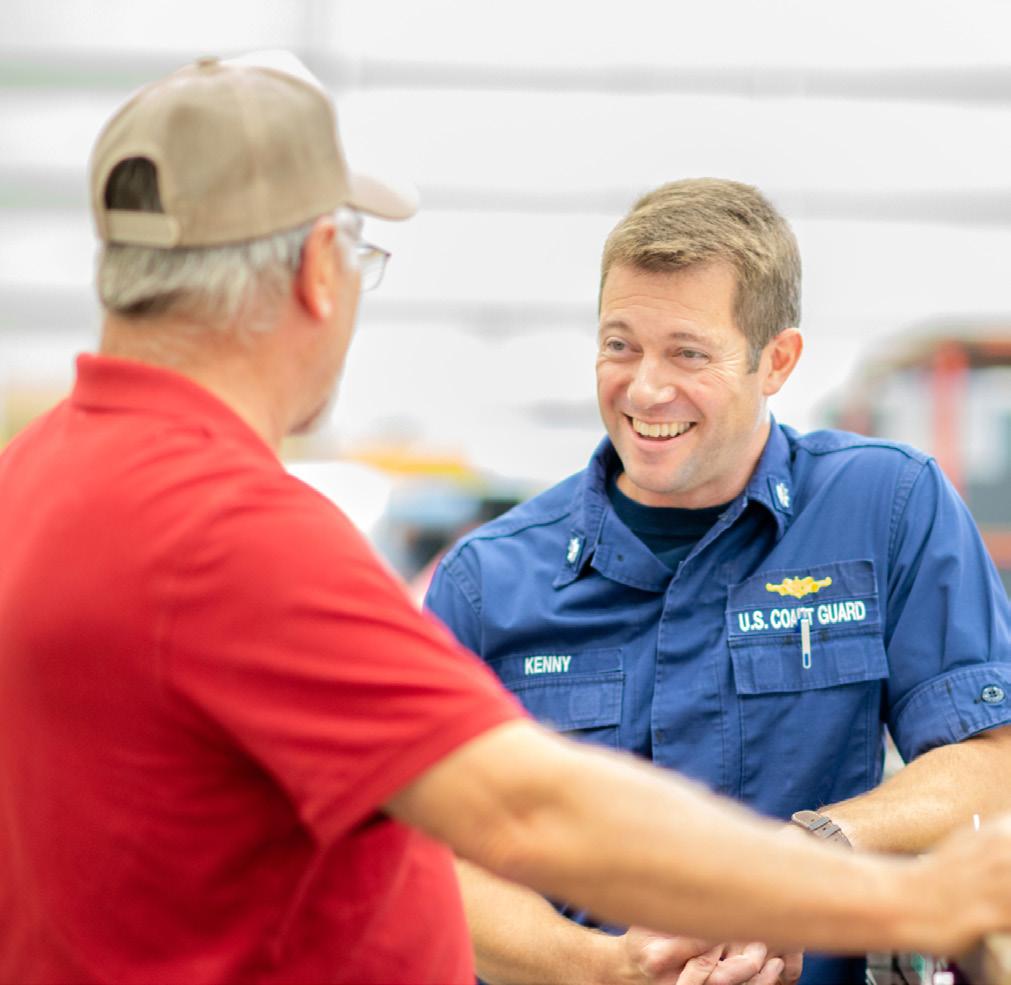
“My favorite duty station was when I was the executive offcer of a 110-Patrol Boat out of the Juneau area,” he said. “I loved the involvement with all facets of shipboard life and how we were able to explore all of the southeast and south-central Alaskan waters. It was just a really incredible experience for me.”
Kenny said he believes the small size of the Coast Guard, compared to the larger branches within the Department of Defense, makes the service “feel like a much closer community with hands-on involvement.”

“Challenges can be diffcult, particularly for the military members, as moving to different locations every 2 to 3 years and the likelihood of constant deployments can be daunting,” he said. “However, lots of career options exist across a bevy of specialties and job types, and we always need great people ready and willing to join our service.”
Kenny said there are several ways for people to contribute to the Coast Guard’s mission. He advised people interested in joining the Coast Guard or working as a civilian for the Coast Guard to speak to current members to learn more.
“Multiple options exist on how you can best contribute to the service, be it as an active-duty military member, as part of the civilian work force or as a contractor, all with unique benefts and challenges,” he said. “Make sure you talk with people already in those felds so they can help you choose which option is best for you to contribute toward, based on what you’re specifcally trying to get out of it. If you end up doing exactly what you initially wanted to do, that will hopefully keep you with our service for the long haul.”
Moving to new locations every so often wasn’t a new experience for Kenny, as he grew up the son of a career Army soldier, who served in multiple locations in Germany, in Kentucky, and at Fort Bragg, which was recently renamed Fort Liberty.


While serving aboard cutters performing drug-interdiction patrols in the Caribbean, Kenny often worked with other U.S. military services, as well as those from other nations.
“Doing counter-drug operations on major cutters is very exciting and impactful but is also really exhausting work,” he said. “Working in tandem with other agencies to jointly patrol for drug running vessels in the Caribbean and the eastern Pacifc was an incredible experience, and it was amazing being part of the collective efforts to stop multiple large shipments of cocaine and prevent them from entering the country.”
Kenny has been awarded a Meritorious Service Medal, several Commendation Medals, an Achievement Medal and a U.S. Coast Guard Letter of Commendation. For his accumulated service at sea time, he’s also earned the distinguished designation as a permanent cutterman.
He holds professional accreditations as a Certifed Financial Manager and a Certifed Defense Financial Manager.























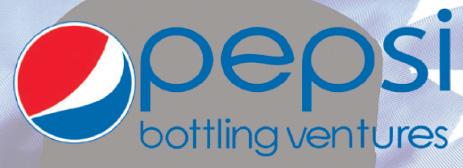
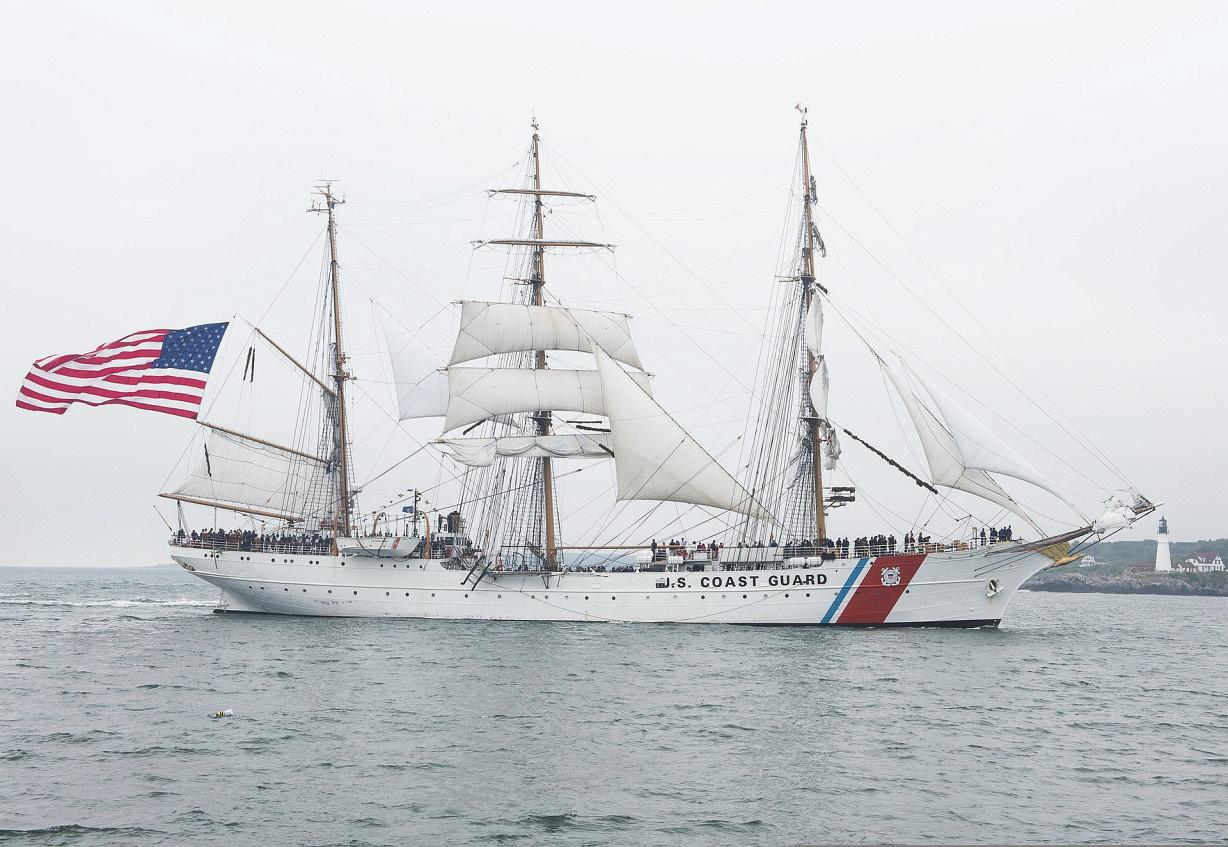



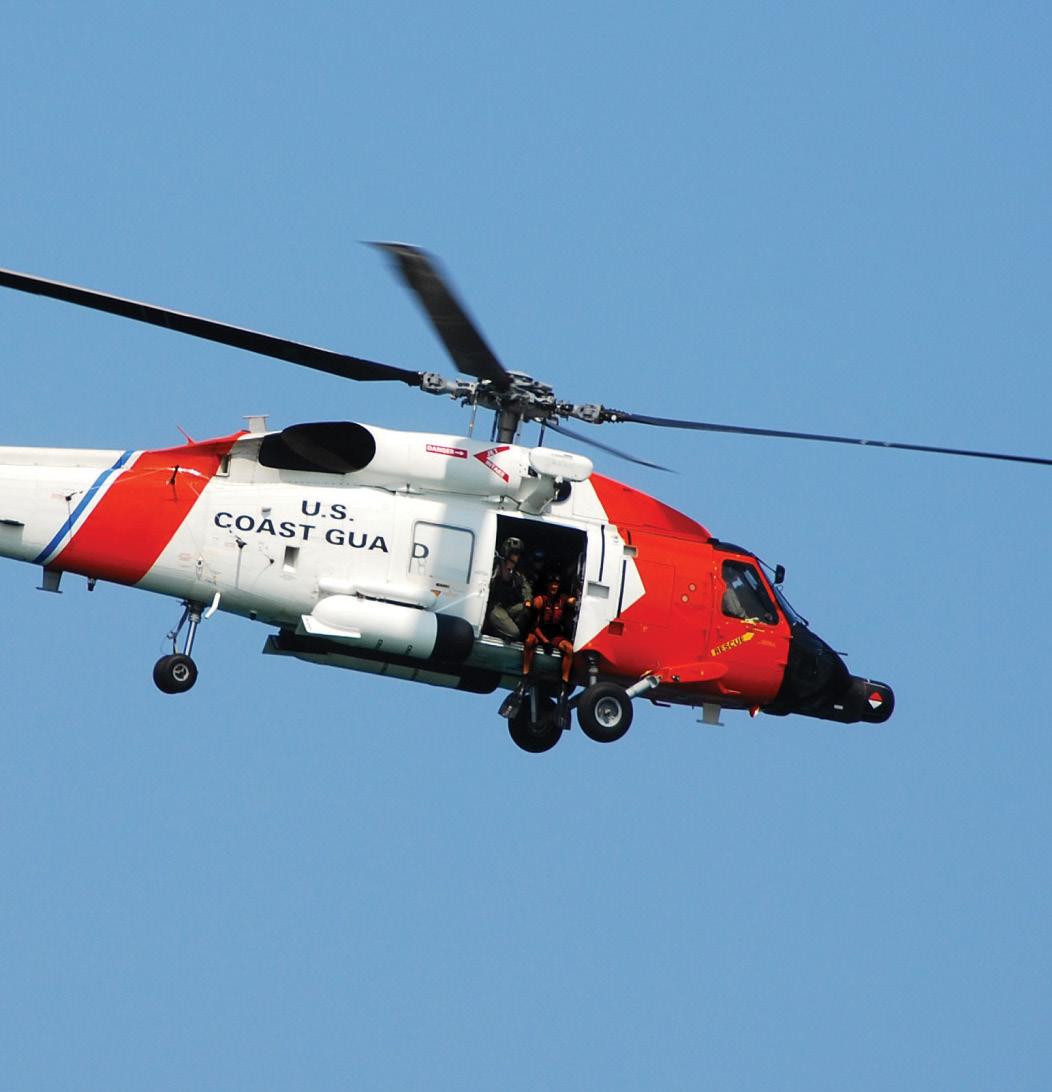

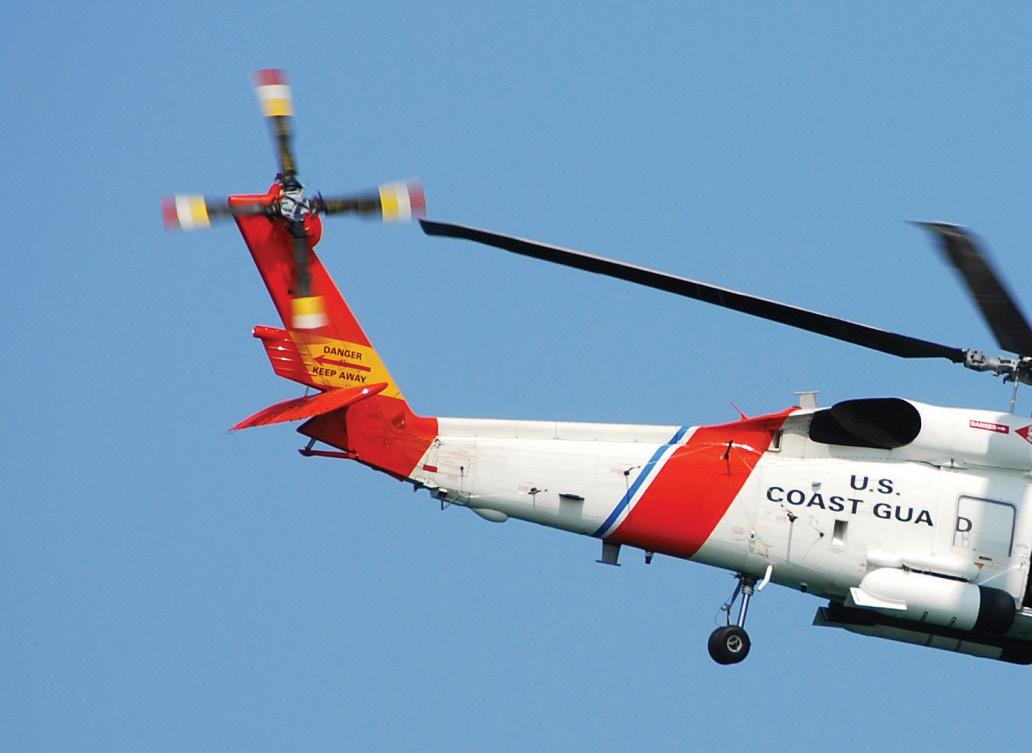


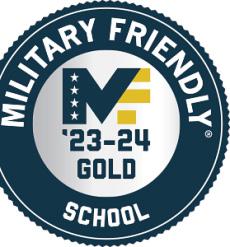
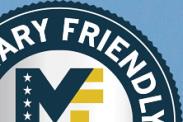


Dorian Bowden has served in the U.S. Coast Guard for just shy of two years. So far, he likes his career path.
The 20-year-old Bradenton, Florida, native joined the Coast Guard right out of high school because “it seemed like a good and different opportunity,” he says.
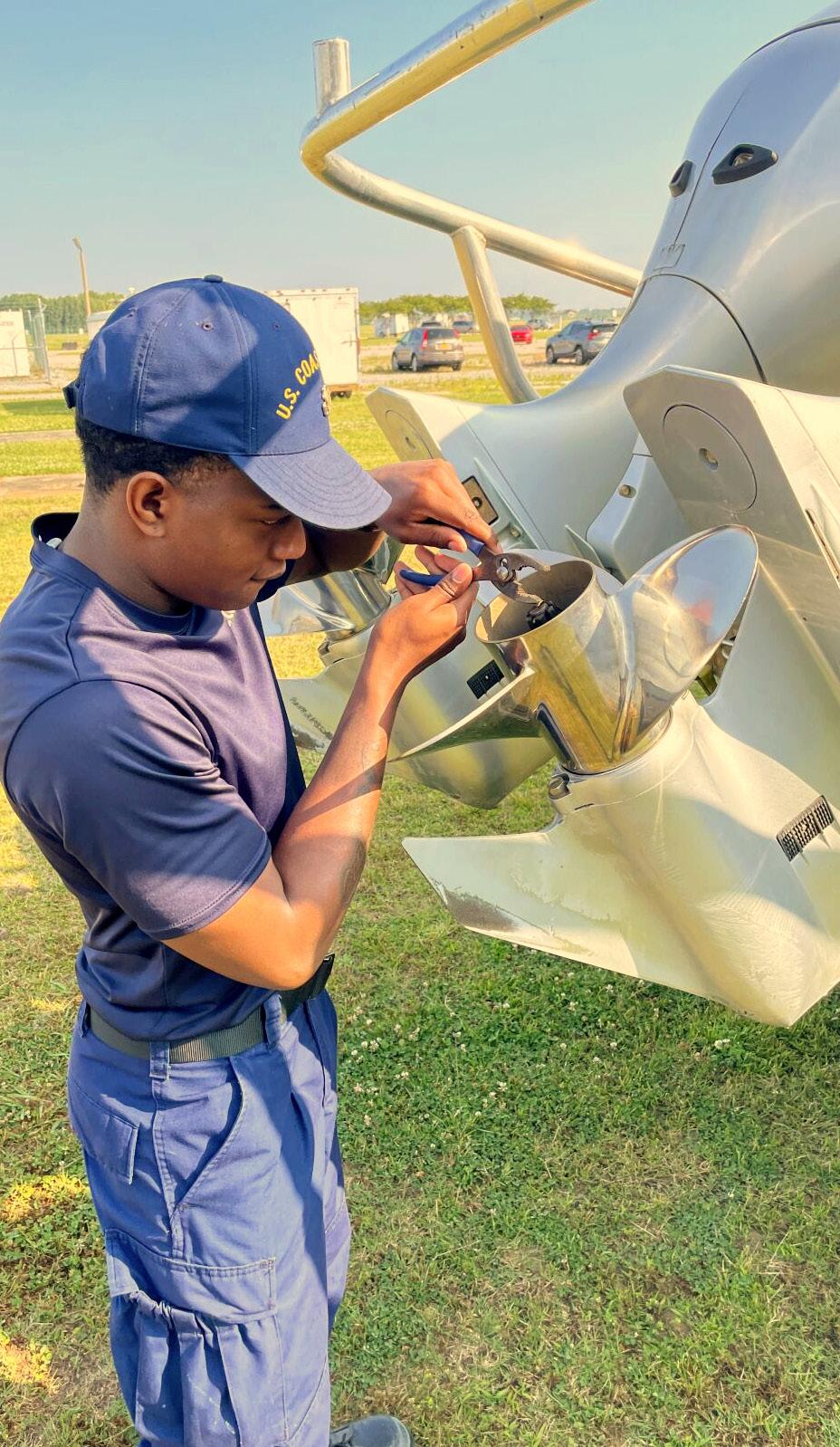
“I took networking and IT classes all throughout high school, and there’s a lot of job opportunities on the outside of the Coast Guard,” he says.
Small Boat Station Elizabeth City is Bowden’s frst duty station since completing boot camp. His current rate is freman, which in the Coast Guard means he’s someone who works to maintain and repair boats and facilities as part of the station’s engineering department.
He’s still waiting to attend Coast Guard A School, where he said he hopes to “broaden my knowledge” of the Coast Guard and learn skills that will help him further his career. He’s already earned National Defense and pistol ribbons and certifcates for the qualifcations he needs for his work at the Small Boat Station: Boat Crew Member, Boarding Team Member, Communications Watch Stander and Engineer.
So far, he’s enjoying his assignment at the Small Boat Station.
“Everyone here is super cool and we all help each other out,” he said. “It’s like we’re all family and the command is just as cool. I can go to them about anything I’m having issues with.”
Bowden also is enjoying his time in Elizabeth City.
“Elizabeth City is kind of like my hometown, a small quiet town with a few nice restaurants and places. I couldn’t have asked for a better frst unit,” he said.
During his assignment at the Small Boat Station, Bowden said he has participated in a few search and rescue missions. One last September that happened while station crews were doing safety boardings was probably the most interesting, he said.
“We received a call of a boat taking on water and we turned around, came back and safely towed them back to their dock,” Bowden said.
There is a lot Bowden enjoys about the Coast Guard, but two things in particular are how Coasties “treat each other,” he says, and the fact the service provides him the “freedom to live off base.”
“It has allowed me to save a lot of money to set myself up for the future before I go to A school, as well as further my career and education,” he said.
The biggest challenge he’s faced was getting qualifed to perform his tasks at the Small Boat Station.
“It’s a lot of information and practical things you must learn and retain in kind of a short period,” he said. “This is much more than when I was in high school.”
When he’s not on duty, Bowden said he enjoys working out and playing video games. While he sometimes hangs out with other Coasties assigned to the Small Boat Station, he also has some Navy buddies from back home in Bradenton who are currently stationed at the Norfolk Naval Base that he spends time with.
Bowden said he plans on “extending his contract” with the Coast Guard depending on his next duty assignment but currently doesn’t plan on staying in for 20 years.
He still believes the Coast Guard is a good opportunity for young persons looking for a career.
“The Coast Guard takes care of its members, and you will not regret your decision” joining, he said. “You just have to make it through boot camp — everything else will fall into place.”
During his 12 years in the U.S. Coast Guard, Petty Offcer 1st Class Matt Norman has had a number of unique experiences. But none probably as unique as when he spent time helping a government agency protect and rejuvenate a species of endangered shorebird.
Norman, 31, an E6 marine science technician 1 currently assigned to the National Strike Force Coordination Center in Elizabeth City, said he worked with the New Jersey Fish and Wildlife Service on a project to increase the numbers of piping plovers by protecting them from predators.
“Prior to that year there wasn’t a successful fedge of a plover in a decade,” Norman recalled. “With the continued four-month efforts by Fish and Wildlife monitoring nests and protecting them (the piping plovers) from predation, we were able to accomplish that.
“It may seem like a small feat but in that community, it was a huge success as the numbers (of piping plovers) have increased every year. I was proud to be a part of that,” he said.
It’s assignments like that one that have made his work as a marine science technician rewarding, Norman said. He says the MST1 rate “was the frst that stuck out to me” after he joined the Coast Guard a dozen years ago.
“I only had a basic understanding of what an MST actually does, but that was enough for me to choose it,” he said, adding that he’s thankful that he did because “there is so much more to it than I had originally thought.”
Norman, who grew up in Lancaster, California, says he joined the Coast Guard right out of high school because of the wealth of potential career opportunities it presented. His initial plan was to spend six years as a Coastie, gaining experience and continuing his education, he said.
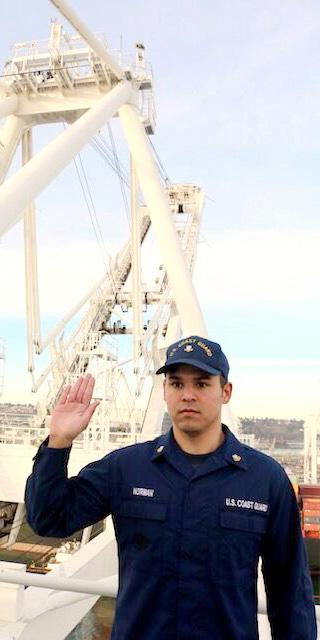
“I wanted to continue to expand my knowledge in my feld and be able to use as much as I could on the outside” after leaving the Coast Guard, he said. But he says that six years ended up turning into a career.
Prior to coming to work at the NSFCC 11 months ago, Norman’s previous duty stations included the
Coast Guard Cutter Sea Otter, which is based in San Diego; the Coast Guard Cutter Aquidneck in Bahrain; Coast Guard Sector Puget Sound in Seattle; and the U.S. Coast Guard Training Center in Cape May, New Jersey.
At the NSFCC, Norman works for the Marine Environmental Response Preparedness Department. He’s one of a four-member team that manages a nationwide database of oil spill response equipment and conducts preparedness assessment visits, or PAVs, to ensure that oil spill removal organizations, or OSROs, listed in the nation’s Response Resource Inventory have the resources they need to respond in case of a major oil spill, hazardous chemical spill or other similar disaster.
“PAVs are a critical component of the oil spill response preparedness system, providing on-site verifcation of resources and their condition,” Norman said.
Norman says the best part of his Coastie career has been the ability to travel and learn new skills “that normally wouldn’t have been provided to me.”
“Since I joined right out of high school, I was able to develop skills at a young age that others would spend years learning,” he said.
There are challenges to Coastie life, he acknowledges.
“The hardest part is being away from family and friends,” he said. “There are times where you have to sacrifce missing major life events.”
Norman said he “thoroughly enjoys” his assignment in Elizabeth City.
“Growing up near Los Angeles I have never been a fan of city life,” he said. “Quiet towns near the beach are more my style.”
In fact, when he’s not on duty, he likes to spend most of his down time at the beach, he said.
Norman said his advice to any young person considering giving the Coast Guard a try is to do so. The potential rewards are just too good to pass up.
“I’d say if you’re thinking about joining, do it,” he said. “Even if you don’t make a career out of it, you can quickly learn skills that would help you on the outside, while being able to get some experience and leadership under your belt.”
Chief Warrant Offcer 4 Randy Kevin Jopp Jr. has served nearly 30 years in the U.S. Coast Guard’s aviation community.
“I have dedicated 27 years of my life to serving in the United States Coast Guard,” he said. “Choosing to join the Coast Guard was an effortless decision for me, given the vast array of career paths it offered and the diverse missions it performed. Few professions can provide such a diverse range of experiences and opportunities.”
Jopp is a native of Harrington, Delaware, assigned to the Aviation Logistics Center, where he serves as the Medium Range Surveillance HC-144 fxed wing Ocean Sentry aircraft production manager.
“My primary role is to ensure aircraft leaving ALC after overhaul, major repair or upgraded with the latest mission systems are airworthy and able to perform the various missions of the U.S. Coast Guard,” he said. “This is my second tour at ALC, totaling just over seven years.”
In the Coast Guard, warrant offcers are former enlisted personnel who demonstrated strong profciency, knowledge and skills in their particular job rating. To become a warrant offcer, enlisted personnel must have achieved at least the rank of petty offcer 1st class. Warrant offcers are senior to enlisted personnel but subordinate to the most junior of commissioned offcers, which are ensigns.
Jopp said he knew as early as high school that he wanted to serve in the military, but did not know much about the Coast Guard until a clever recruiter piqued his interest.
“That all changed when a recruiter took the initiative to coordinate a career day to Small Boat Station Indian River Inlet (in Delaware), where I shadowed a small boat crew as they performed a routine patrol,” Jopp said. “It was at that moment I knew my passion to serve could be fulflled as a member of the U.S. Coast Guard.”
Jopp said he chose the aviation feld because of the exciting unpredictability of the job.
“One minute you could be diligently working on an aircraft and the next soaring through the skies as a crew member, participating in search and rescue operations or law enforcement missions,” he said.
Aviation also appealed to his interest in performing handson aircraft repair while also being able to fy as a crew member.
“The Coast Guard aviation program seamlessly blends technical expertise of a mechanic and the thrill of fying as a

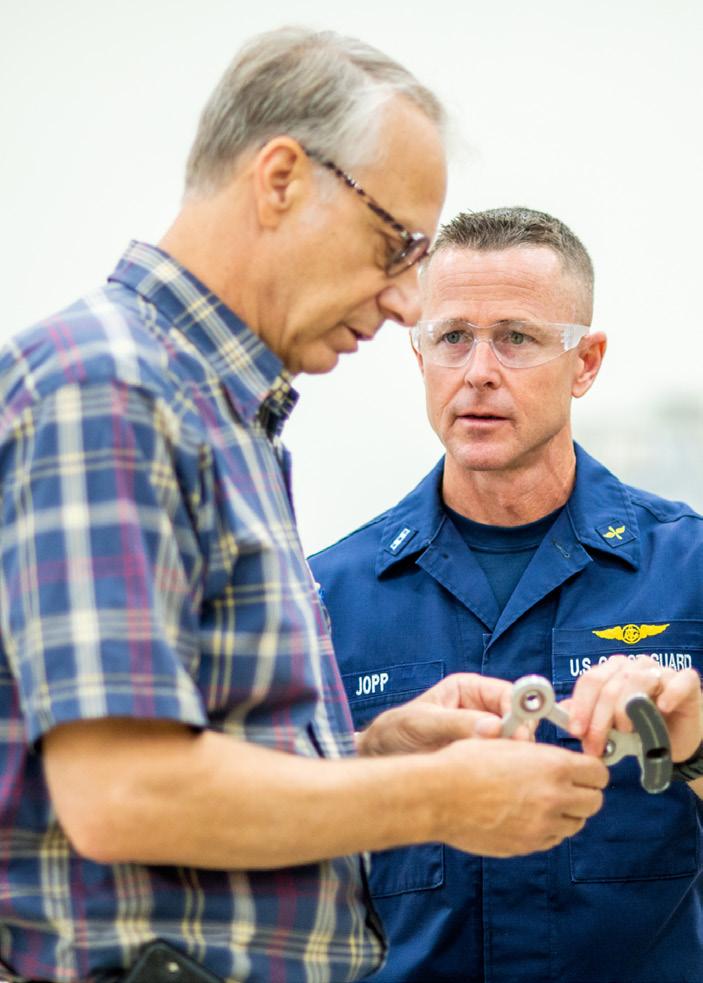
crew member,” he said.
According to Jopp, the opportunity to work with so many Coast Guard and civilian workers who represent different specialties and trades is what makes ALC an enjoyable workplace.
“The best part about serving at ALC is being able to work with so many talented people across many different trades, all sharing the same objective of keeping the U.S. Coast Guard’s aviation assets operational,” he said. “Elizabeth City is an amazing place to live, and my family and I look forward to calling it our ‘forever home.’ ”
Jopp also has served at Air Station Miami, where he took part in several missions that included hurricane relief, search and rescue operations, and conducting assignments alongside the Coast Guard’s partners with the U.S. Department of Defense.
“However, the most challenging, but also the most rewarding projects have occurred while stationed at ALC within the MRS division, as we continually perform major repairs, overhauls and modifcations of the HC-144,” he said.
Jopp also served an earlier assignment at the Aviation Technical Training Center, also located on base in Elizabeth City. The center is the hub for all Coast Guard enlisted aviator job training.
“Air Station Miami offered everything from performing to planning maintenance with the goal of mission execution,” he said. “(The) Aviation Technical Training Center provided an opportunity to train our future workforce for tomorrow’s challenges. The Aviation Logistics Center allowed me to become a member of a very diversifed workforce in the accomplishment of overhauling, repairing or modifying an aircraft.”
A career in the Coast Guard offers both advantages and challenges, according to Jopp
“Coast Guard life offers endless opportunities, not only for the active-duty member, but also for their family,” he said.
“Advantages include endless professional and personal development opportunities, travel, camaraderie, job security and (the honor of) becoming a part of something bigger than yourself.
“Challenges are always present serving in the military,” he said. “Most often the biggest challenge is having to relocate your family to a new location and leave a place that has become your home, like Elizabeth City.”
Asked if he had any advice for young people who are considering enlisting in the Coast Guard, Jopp said he recommends to stop considering and just enlist.
“Don’t wait; join now,” he said. “Joining the Coast Guard
will prove to be a highly advantageous career choice. The possibilities for personal and professional development are limitless and your growth is determined by your own drive and determination to succeed.”







When not in uniform and away from the offce, Jopp enjoys spending outdoor time with his family.
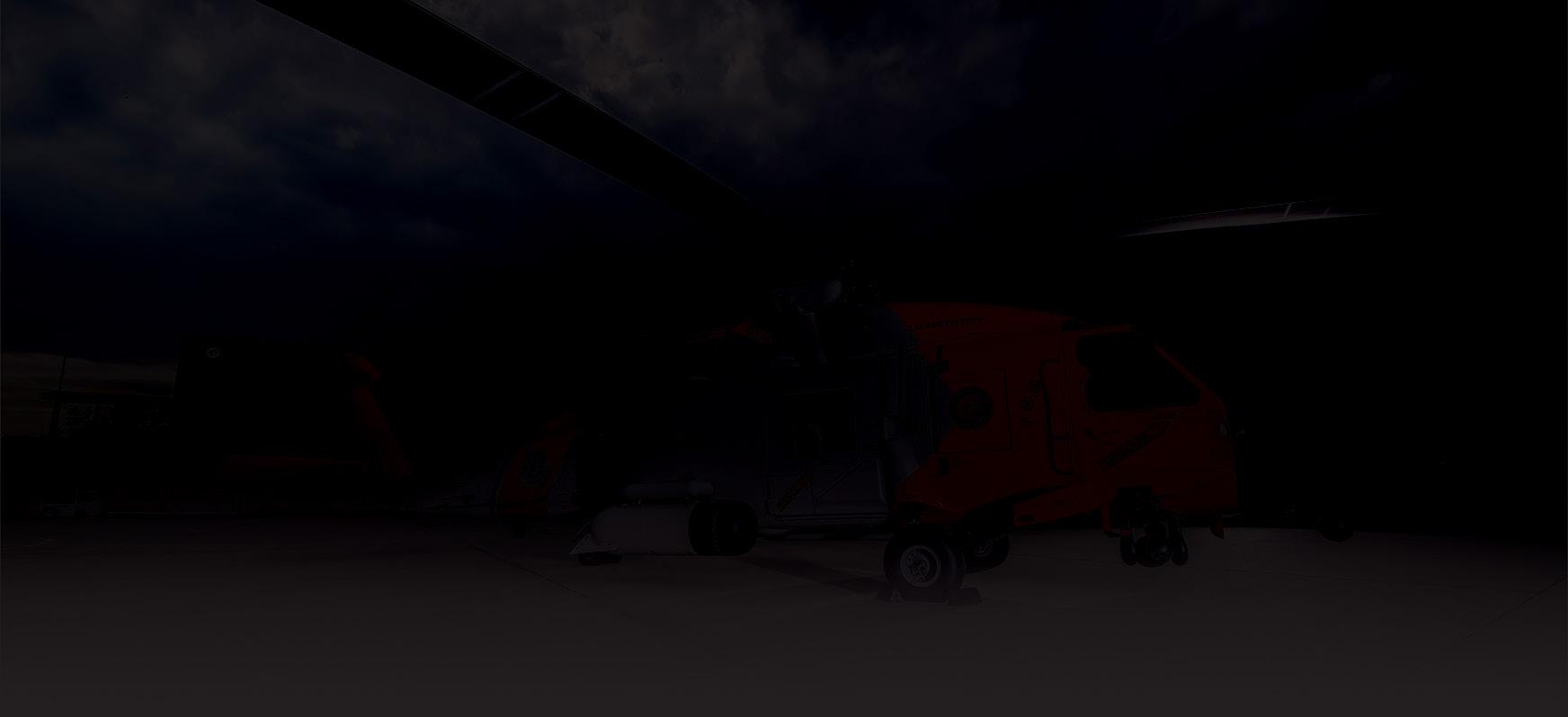
“My greatest pleasure lies in dedicating my free time to being with my family,” he said. “Those activities we enjoy include everything from fshing, hunting, boating, organized sports, gardening, (going to the) beach, working out, or simply sitting on the back deck watching the sunset with my wife.”

Jopp is the recipient of three Coast Guard Commendation Medals and three Achievement Medals and a Commandant’s Letter of Commendation. He also was a 2017 nominee for the Pasquotank County Men of Excellence Award and a nominee for the Capt. John Witherspoon Inspirational Leadership Award.

Capt. Chip Lewin is looking forward to spending more time on the Pasquotank River in the wake of his July 7 retirement from the U.S. Coast Guard.

Lewin, who retired as commander of Coast Guard Air Station Elizabeth City, said he believes it is important for the Coast Guard to be an integral part of the community in Elizabeth City.
“We want to be a part of the community,” Lewin said.
He said he looks forward to enjoying hobbies such as boating and fshing.
“I have a lot of hobbies but most of them have taken a back seat to the kids and their sports and activities,” Lewin said.
He and his wife have a son Caleb who is a rising junior at Elon University, a daughter Hunter who is a rising sophomore at N.C. State University, and a son Cooper who is a student at Camden County High School.
The Lewins live on the Pasquotank River in Camden County and enjoy boating, fshing, paddleboarding, kayaking, personal watercraft and other water-based recreation.
“That’s why we are retiring here,” Lewin said. The family enjoys water-based recreation and living on the water, and being able to see the water every day.
Lewin said he has owned a number of boats but currently has a 19-foot Starcraft that he uses for a variety of purposes including fshing, touring and waterskiiing.
“We use it for everything,” Lewin said.
Another draw for the family is relationships with people and organizations in the community, he said.
Building and maintaining strong relationships between the Coast Guard and the community is good for the community and also helpful for Coast Guard personnel who are newly arriving here, he said.
“We’re a Coast Guard City,” Lewin said.
And the Coast Guard has a close working relationship with Elizabeth City State University, he added.
Lewin said he has met a lot of people in the community.
“This just feels like home for us,” Lewin said.
Lewin said he is proud of the direction in which the city is going.
Lewin has been active in the community as a member of a number of civic organizations, including the Elizabeth City Morning Rotary Club, the YMCA Board, and the Green Saves Green Board of Directors.
Green Saves Green is consistent with the part of the Coast Guard’s mission that is focused on environmental protection.
“I just think it’s good to keep our water and our community clean and safe,” Lewin said.
Lewin said he and his wife have friends who run small businesses in the community.
The location is good, he said, noting that it’s near the Outer Banks and Norfolk, Virginia, and not too far from Raleigh.
Lewin has been commander of Air Station Elizabeth City since June 2020. He has experience fying a number of different helicopters and fxed-wing aircraft in the Coast Guard, which noted in a press release that he “has led a compliment of 300 members operating a feet of three MH-60T helicopters & fve HC-130J fxed-wing aircraft in the execution of maritime safety & security missions in the Atlantic region.”
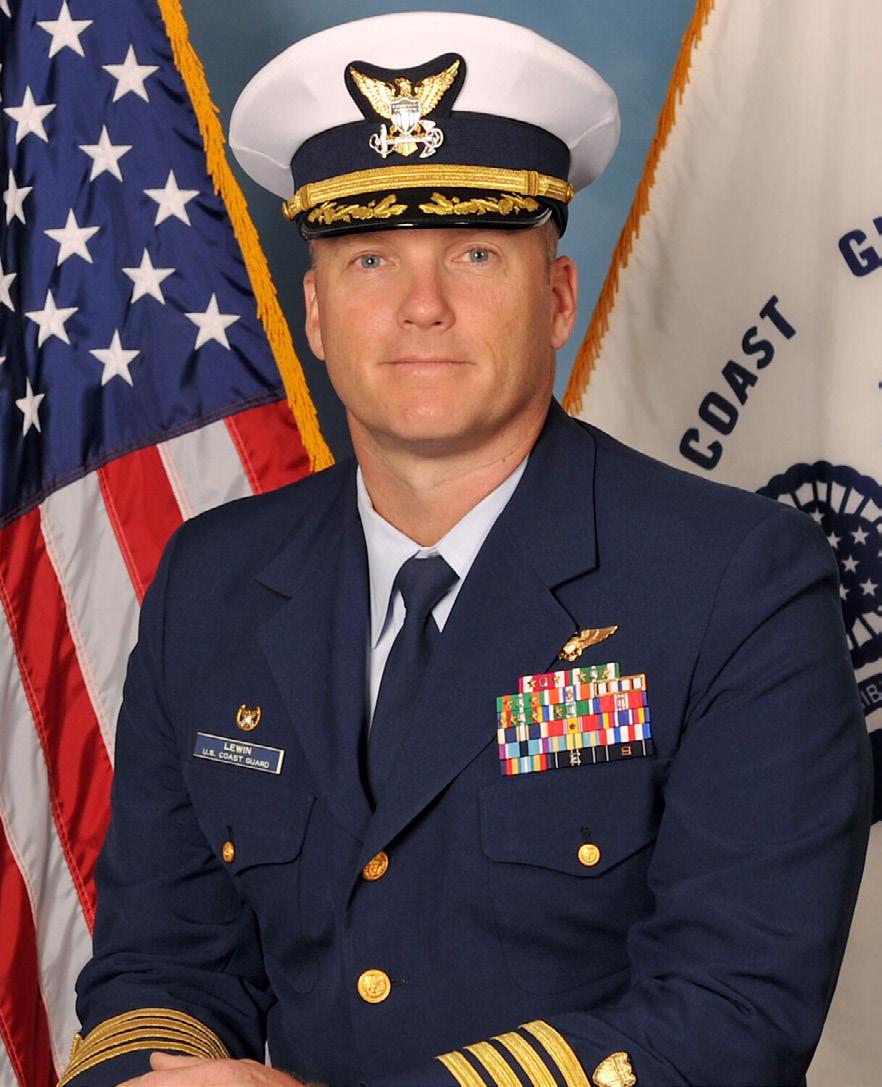
Lewin graduated from the Coast Guard Academy in 1995 with a degree in mechanical engineering. After completing Naval Flight Training at NAS Pensacola and NAS Whiting Field he was designated a Coast Guard aviator in 1998.
He earned a master’s degree in aerospace structural engineering in 2006. From 2004-10 he was stationed at the Aviation Logistics Center in Elizabeth City.
His wife, Caldwell Lewin, is a registered nurse who works for Sentara Health.
Lewin said that when he was in high school he knew he wanted to fy in the military.
He considered both the Naval Academy and the Coast Guard Academy, but chose the Coast Guard Academy partly because he enjoyed playing football and pole vaulting, and his high school football coach told him he had a good opportunity to get active playing time on the gridiron early in his college career if he attended the Coast Guard Academy.
Lewin noted he completed an internship in Elizabeth City while he was enrolled at the Coast Guard Academy.
He said from that frst experience here he has realized this was a special place.

U.S. Coast Guard Capt. Carolyn Moberley has assumed command of the National Strike Force and NSF Coordination Center in Elizabeth City.

Moberley, who previously served as chief of the Coast Guard’s Atlantic Area Planning Branch, relieved outgoing commanding offcer Capt. Tedd Hutley in a change of command ceremony held on base in Elizabeth City, Thursday, June 15.
Vice Adm. Kevin Lunday, commander of the Coast Guard’s Atlantic Area, presided over the ceremony, which also honored Hutley’s retirement after 23 years of service. Hutley was recognized for his years of meritorious service as head of the NSF and NSC Coordination Center from June 2020 to June 2023.
Moberly also served previously as deputy commander of the NSF and as executive offcer of the NSFCC.
The NSF, located on North Road Street near Holy Family Catholic Church, has a workforce of more than 300 active duty, civilian, reserve and auxiliary personnel. It helps protect public health and the environment by providing trained, experienced personnel and specialized equipment to the Coast Guard and other federal agencies, helping them prepare for and respond to oil and hazardous substance pollution events.
The NSF is responsible to all Coast Guard districts and federal response regions, and is comprised of the NSFCC, three regional Strike Teams, the Incident Management Assist Team and the Public Information Assist Team.





